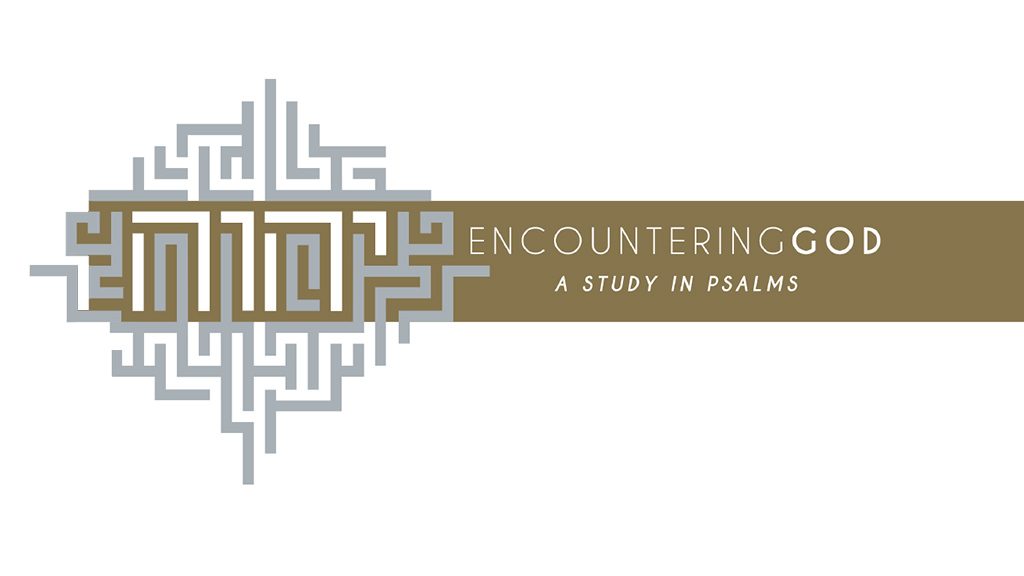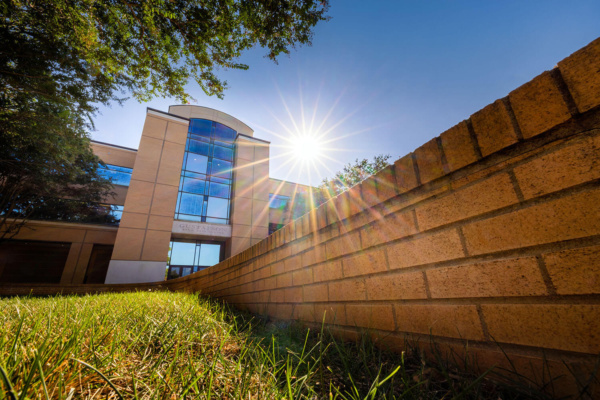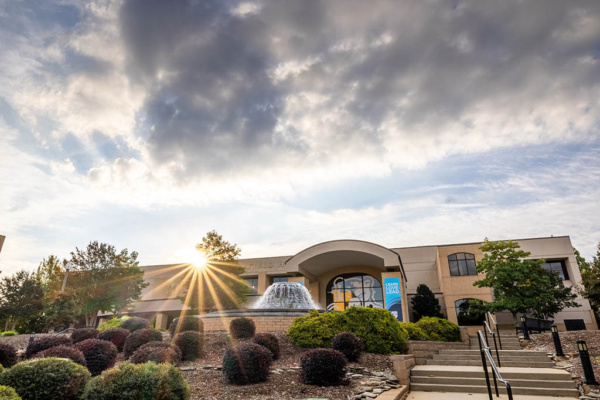The book of Psalms begins with a promise, “Blessed is …” (1:1), and ends with a praise, “Praise ye the Lord” (150:6). In between the first and last psalms, we learn about the life that encounters God. What does one say at the end of a life that has known God and walked with Him? Praise the Lord!
Psalm 150 is a climactic conclusion to a collection of five praise Psalms (146–150) where everyone and everything are to praise God everywhere. This psalm speaks of the ultimate end of a life that has encountered God. This final psalm presents the basic questions and sets forth the biblical pattern of praise.
What Does It Mean to Praise God?
Psalm 150:1
Praise ye the LORD.
The Hebrew for “Praise ye the Lord” is hallelujah. Hallel means to praise; Jah is the shortened form of the word for the Lord. So you can read it: Hallel-u-Jah. You praise the Lord!
Praise is like light radiating from the sun. It conveys the idea of cheering, shouting, and clapping, like at the conclusion of a great concert. It often means to boast or brag about something someone has done. To praise is to extol enthusiastically the greatness of someone or something with words of excellence.
We are commanded to praise the Lord thirteen times in these six verses. Praising God is not an option; it is an obligation. It is both our delight and our duty. The greatest truth about God is that He is worthy of our praise, and the deepest truth about ourselves is that we have been created to praise Him.
What does it mean to praise God? It is expressing joyful delight in His divine presence. When we do this, we realize the ultimate purpose of our existence.
Where Do We Praise God?
Psalm 150:1
Praise God in his sanctuary.
In the Old Testament the Jewish people were commanded to praise God by going up to Jerusalem and worshiping Him in His holy temple or sanctuary.
Enter into his gates with thanksgiving, and into his courts with praise. (Ps. 100:4)
Today the Lord’s presence dwells inside every believer (1 Cor. 3:16; 6:19) and in the corporate assembly of the church, the body of Christ, when we gather together for worship. We are called to worship God on earth as we meet with His chosen people.
Psalm 150:1
Praise him in the firmament of his power.
God is also to be praised in the vast expanse of heaven—“the firmament of his power.” All of heaven is a display of God’s infinite power and wisdom. As Psalm 19:1 states, “The heavens declare the glory of God; and the firmament showeth his handywork.” This kind of awesome display means heaven is a place of praise. Heaven and earth are to be a unified choir of praise.
Praise ye the Lord. Praise ye the Lord from the heavens: praise him in the heights. Praise ye him, all his angels: praise ye him, all his hosts. (Ps. 148:1–2)
Where do we praise God? Everywhere! If there is no space that does not declare God’s glory, there is no place where His image bearers should not proclaim His praise.
Why Do We Praise God?
Psalm 150:2
Praise him for his mighty acts:
We are to praise God for what He does. He displays His strength and saving might. For example, Daniel praised God because he understood that his ability to interpret king Nebuchadnezzar’s secret dream was due to God’s wisdom and might (Dan. 2:20).
God’s mighty acts are revealed especially when He rescues and delivers His own people through prayer. David testifies, “Now know I that the Lord saveth his anointed; he will hear him from his holy heaven with the saving strength of his right hand” (Ps. 20:6). Successive generations are called to praise God for His might acts.
One generation shall praise thy works to another, and shall declare thy mighty acts. (Ps. 145:4)
Psalm 150:2
Praise him according to his excellent greatness.
We are also to praise god for Who He is. Excellent refers to abundance. Greatness speaks of the magnitude and majesty of God’s glorious attributes like faithfulness, mercy, grace, love, righteousness, holiness, justice, and wisdom.
O Lord God, thou hast begun to shew thy servant thy greatness, and thy mighty hand: for what God is there in heaven or in earth, that can do according to thy works, and according to thy might? (Deut. 3:24)
Why do we praise God? Because of what He does and who He is.
How Do We Praise God?
Psalm 150:4–5
Praise him with the timbrel and dance: praise him with stringed instruments and organs. Praise him upon the loud cymbals: praise him upon the high sounding cymbals.
Verses 4 and 5 of Psalm 150 describe the various musical instruments used in the temple worship by the Levitical priests. The meaning of the word psalm refers to a song of praise accompanied by a stringed instrument like a harp. Psalms are songs to praise God along with musical accompaniment.
Instruments as accompaniments to praise, or any aspect of prayer for that matter, are God’s will as His Scripture frequently shows. David led in organizing musical ministry (1 Chr. 22–29), and it exercised a strategic role under the guidance of several later kings. It also was sorely missed in the exile (Ps. 137), and important under Ezra and Nehemiah, in the inter-testament era, and among New Testament believers. So it has usually had a stimulating ministry ever since. And heaven is filled with music as the book of Revelation reflects.[1]
The psalm mentions many instruments to be played either individually or in a priestly symphony in praise to God.
First, there were wind instruments, such as the trumpet. This ram’s horn (shofar) was used on special occasions like in 2 Samuel 6:15: “So David and all the house of Israel brought up the ark of the Lord with shouting, and with the sound of the trumpet.” The psalm also mentions “organs,” which are piped instruments like the flute or pennywhistle.
Second, this praise includes stringed instruments. The psaltery was a portable instrument like a lute or guitar with ten strings (Ps. 33:2). The psalm also mentions a harp, like the instrument David played before Saul (1 Sam. 16:16, 23), as well as other stringed instruments (Ps. 150:4). The harp along with the pipe are the earliest instruments mentioned in Scripture.
And his brother’s name was Jubal: he was the father of all such as handle the harp and organ. (Gen. 4:21)
A third and final category are percussive instruments. The timbrel is like our tambourine and is linked to dancing as an expression of joy. The loud cymbals and high-sounding cymbals noted in verse five may refer to smaller cymbals like a castanet and the large, crashing cymbals used in orchestras today.
Worship in the temple was not always quiet or subdued, nor was it ever for the purpose of entertainment. It was always to be directed to the audience of one. We sing for God’s glory alone!
Who Is to Praise God?
Psalm 150:6
Let everything that hath breath praise the Lord. Praise ye the Lord.
God is to be praised everywhere we are, because of everything He is and with everything we have by everyone and everything.
We finish where we started. A happy man (Ps. 1) is one who meditates on God’s Word and follows God’s way. Throughout his life he encounters God through his experiences and grows in the knowledge of God. His days should be filled with praise and should end with a hallelujah.
By him therefore let us offer the sacrifice of praise to God continually, that is, the fruit of our lips giving thanks to his name. (Heb. 13:15)
This psalm is noisy and loud. There are many times in worship when we should quietly reflect before the Lord in stillness and rest. There are also times when our hearts are broken over circumstances of sin, and we should weep before the Lord in heartbroken sorrow as we cast our cares upon Him.
Then there are times when we should celebrate. We should enter into the presence of heaven with a shout! We should be praising the Lord all the time.
From the rising of the sun unto the going down of the same the Lord’s name is to be praised. (PS. 113:3)
[1] James E. Rosscup, An Exposition on Prayer in the Bible: Igniting the Fuel to Flame Our Communication With God (Chattanooga: AMG Publishers, 2011), 961–62.
Listen to Dr. Pettit’s chapel message on Psalm 150:
Join us for chapel every Monday through Thursday at 11 a.m. EST.








